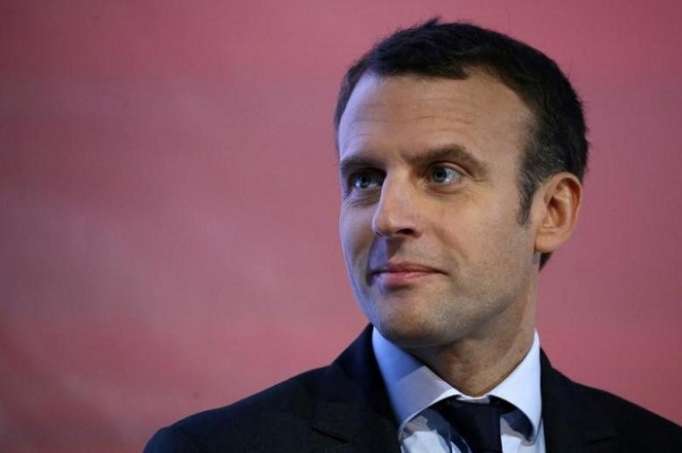Being too big to fail, France has long benefited from procedural gimmicks that allow it to run deficits well above what is allowed under the European Commission's fiscal rules. Since not even a far-right government would jeopardize this privileged status, a political stalemate is what should most worry investors.
When former French President Valéry Giscard d’Estaing was finance minister in the 1960s, he famously described America’s status as the issuer of the world’s reserve currency as an “exorbitant privilege.” But his label applies equally well to his own country’s position in the European monetary union. Despite persistently widening budget deficits, France has long been able to borrow almost as cheaply as fiscally prudent Germany. The bond market even shrugged off S&P’s downgrade of French sovereign debt at the end of last month, implying that France was somehow immune from the usual credit discipline. Then politics intervened.
Following the surge of support for the French far right in this month’s European Parliament election, President Emmanuel Macron’s abrupt decision to dissolve the National Assembly and call a snap election has met with a decidedly negative market reaction. But investors may now be underestimating the resilience of the French exorbitant privilege.
The seeds of this privilege were sown in the 1992 Treaty of Maastricht, which created a monetary union without a fiscal union. That scheme required a “no-bailout” rule, lest profligate countries free ride on more fiscally responsible members. But the 2010-12 euro crisis exposed the fatal flaw in this design: if the ban on bailouts meant that the European Central Bank could not serve as lender of last resort, it would threaten the monetary union and, by extension, the entire European project.
The resulting compromise hinged on a fiscal rule. The ECB stood ready to buy unlimited quantities of eurozone member-state bonds, provided that their budget plans were consistent with fiscal rules set and enforced by the European Commission. Meanwhile, the fiscal police in Brussels remained very lenient toward French governments. The crises in smaller peripheral countries, and then in Italy, had been alarming enough. The last thing they wanted was a similar bust-up with France, the cornerstone of the entire European construct. So, they devised a fudge.
As a penalty for its routine non-compliance with fiscal rules, France would be placed on a naughty list. In accordance with the EU’s “excessive deficit procedure,” the French government would promise to tighten up, and the Commission would declare itself satisfied. The ECB then had political cover to buy French sovereign bonds (if necessary), and this resulted in markets valuing French government debt almost as highly as German Bunds, despite the absence of any real improvement in the French fiscal position.
There was no need for this charade when the eurozone fiscal rules were suspended in response to the COVID-19 pandemic. But the rules (with some modifications) have now been revived, and the French budget deficit, at 5.1% of GDP, is further than ever from the 3% threshold. Thus, even before the latest political shock, the dance between Paris and Brussels was expected to be more sensitive than usual. France was going to have to commit to reduce the deficit by perhaps half a percentage point of GDP, and even that moderate adjustment might have triggered a vote of no-confidence in Macron’s government in the lower house of parliament, where his party lost its majority in the 2022 election.
Two years later, the snap election could well replace Macron’s limping centrist government with one led by parties whose campaigns have abandoned any pretense of fiscal discipline. The European Parliament election and the latest polling both show that the main challenge is coming from Marine Le Pen’s National Rally and allied right-wing parties, and financial markets are already reacting the same way they did when Le Pen first made a credible run for power in 2017.
Back then, Le Pen was promising to abandon the euro and restore the French franc, which would have caused a systemic financial shock. Though she later dropped the idea of leaving the eurozone, she still rattled markets when she ran again for the presidency in 2022. It is no surprise that markets are spooked again.
If National Rally and its allies do win this election, though, it will not be in Le Pen’s interest to trash the country’s exorbitant privilege within the eurozone. In fact, she will have every incentive to exploit it, to smooth her path to the presidency in 2027. That is why her prime minister-designate, the charismatic 28-year-old Jordan Bardella, has already back-pedaled on the party’s most fiscally costly campaign promise: reversing the increase in the retirement age (from 62 to 64) that Macron forced through last year in the teeth of public protest.
Thus, in the event of a right-wing government (which would rule in “cohabitation” with Macron), I would expect to see the same old fiscal charade vis-à-vis Brussels, albeit with more rhetorical brinkmanship that would further unsettle markets. And the same would go for a left-wing government elected on an aggressive tax-and-spend platform, since the revenues from higher taxes would likely satisfy the European fiscal police.
The outcome that would most fully justify the market’s fears is a stalemate. If the right- and left-wing alliances each win around 200 seats while Macron’s centrist bloc is reduced from 250 seats to 150 at most, it would be extremely difficult to form any kind of government, let alone a stable one. Although any future French government is likely to end up resuming the fiscal dance, it takes two to tango. A persistent political deadlock in Paris would leave Brussels with no government to engage, and the longer the political limbo lasted, the greater the financial instability and damage to the European economy would be.
Brigitte Granville, Professor of International Economics and Economic Policy at Queen Mary University of London, is the author of Remembering Inflation (Princeton University Press, 2013) and What Ails France? (McGill-Queen’s University Press, 2021).
More about:
















































